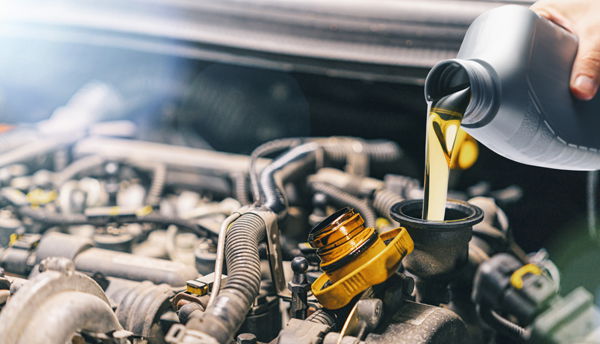What Is An ATF?

ATF, or automatic transmission fluid, is a key component of your transmission. This fluid lubricates your car's moving parts, including the clutch, gears, and brakes. In addition, it protects the transmission from damage due to high temperatures and friction. If you are looking for an ATF for your car, you have a number of choices. Some manufacturers recommend a specific brand. You can also check the manual for more information.
Depending on the make and model of your vehicle, you may need different types of transmission fluid. In general, you can find ATF for Honda transmissions and CVTs. Honda introduced a continuous variable transmission fluid in 1996, but discontinued it for a while. Esso sells transmission fluid under the Jaguar part number. Other brands may use SP-II and SP-III, which are specialized for certain brands of cars. And you can find specialized fluid for four-wheel drive transmissions like the Jeep Quadra-Trac and Toyota Prius.
If you aren't sure what kind of transmission fluid to use, consult your car's owner's manual. You can also use an AMSOIL product guide to determine which type of transmission fluid your vehicle needs. The key to transmission maintenance is ensuring the right type and level of transmission fluid. Make sure to follow the manufacturer's recommendations to ensure that your car is running at peak performance. So, if you want to stay proactive and have a trouble-free drive, transmission fluid is the way to go. Use boise transmission fluids for your vehicle maintenance.
When changing your transmission fluid, you should check the manufacturer's recommended intervals. A good rule of thumb is to change your fluid at 100,000 miles or more. You can even use a synthetic fluid if you're unsure about which type of fluid is right for your car. If your vehicle's manufacturer recommends changing your fluid every three years, you'll be happy to know that you can buy it for a fraction of the price.
The types of transmission oils available today include mineral oils, synthetic hydrocarbons, and naphthenic oils. Oil marketers design multi-vehicle ATFs and don't license them to a particular auto manufacturer. These fluids are specially designed to provide superior performance. They are formulated with modern additive technology and are backed by extensive field testing. Most multi-vehicle fluids are made with synthetic base oils.
Automatic transmission fluids are also called Dexron. This synthetic lubricant was introduced in 2006 and is still in use in most new vehicles. It replaced Dexron II and III, which were used in domestic cars. Dexron VI can also be used in General Motors automatic transmissions. In the future, specialized lubricants will be available for different types of transmissions. However, they're still the main component of the transmission.
There are three common ATFs on the market. All three are licensed by the three largest North American automakers. These ATFs are designed to be compatible with the latest transmission technologies. However, non-licensed transmission fluids are cheaper and aren't endorsed by the vehicle manufacturer. ATF+4 and Mercon V are two popular brands, but they should not be used in a Ford Type F transmission. You can also find specialized ATF for your Ford vehicle. For more information, check out this related post: https://en.wikipedia.org/wiki/Automatic_transmission_fluid.
